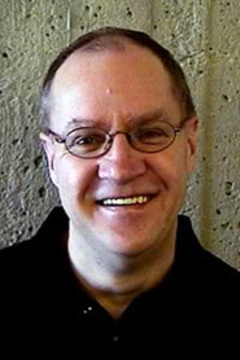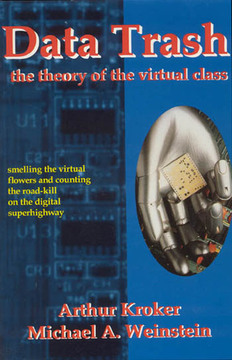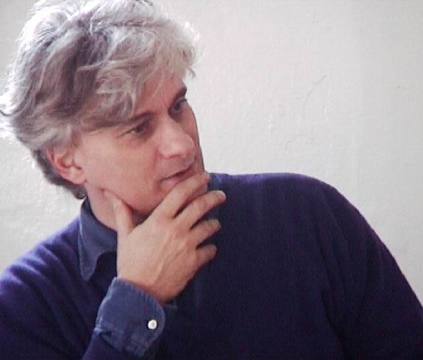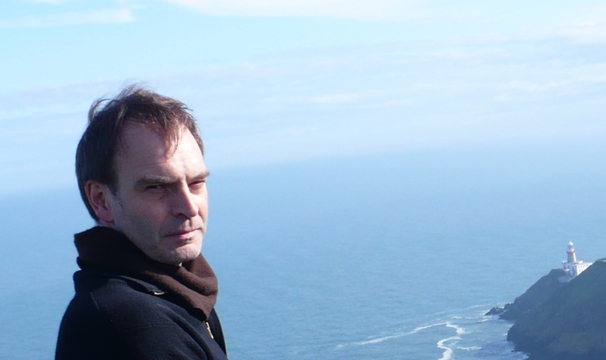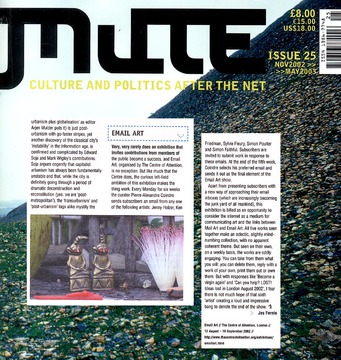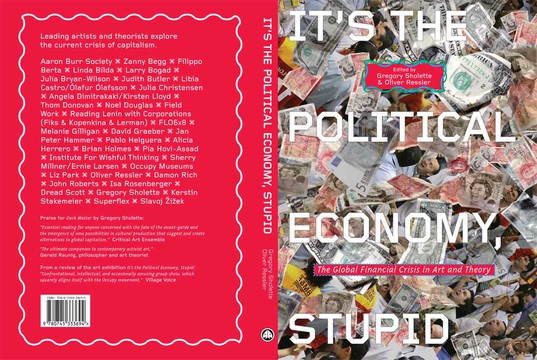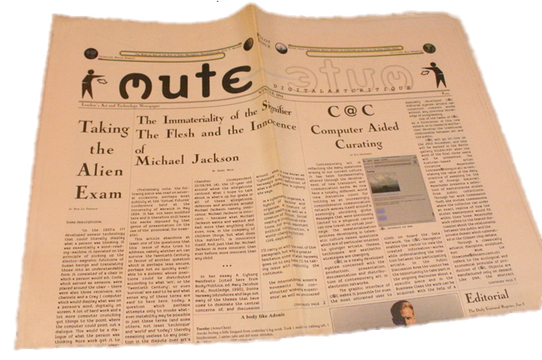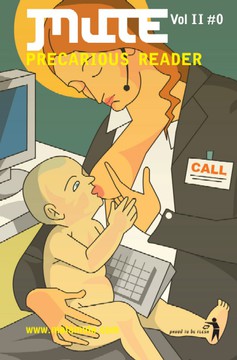Search results for 'theory'
Data Trash
Clemens Apprich
Franco Berardi ('Bifo')
Michael Seemann
Eric Kluitenberg
Mute Magazine (cover)
Next 5 Minutes 3 Workbook
Festival catalogue and reader, March 12-14, 1999.
Digital Resistance (CAE)
PDF version of the book by Critical Art Ensemble.
Brett Stalbaum
Brett Stalbaum is an artist and research theorist specializing in information
theory, database, and software development. A serial collaborator, he
was a co-founder of the Electronic Disturbance Theater in 1998, for
which he co-developed software called FloodNet (http://www.thing.net/~rdom/ecd/ecd.html),
which has been used on behalf of the Zapatista movement against the
websites of the Presidents of Mexico and the United States, as well as
the Pentagon. As Forbes Magazine put it "Perhaps the first electronic
attack against a target on American soil was the result of an art
project." For EDT, this was all learned behavior taught by the example
of the Zapatistas. Stalbaum has been part of many other individual and
collaborative projects, and has published widely on digital art, its
context and aesthetics, and location aware media. He is a past editor
of Switch, the new media journal of the CADRE digital media lab.
Matteo Pasquinelli
Matteo Pasquinelli is a writer, curator and researcher. He completed
his doctorate at Queen Mary University of London with a thesis on the
new forms of conflict within knowledge economy and cognitive
capitalism. He wrote the book Animal Spirits: A Bestiary of the Commons (2008) and edited the collections Media Activism (2002) and C'Lick Me: A Netporn Studies Reader (2007). He writes and lectures frequently at the intersection of French philosophy, media culture and Italian post-operaismo.
Occupy and UK Uncut: the evolution of activism
Occupy Sandy gained the attention denied to Occupy Our Homes because it replaced militant Occupy! with "do-it-yourself" Occupy. Feel-good mutual aid displaced attention from the underlying contradiction between public housing and private utilities onto the quick fix of digital media. Occupy Our Homes, on the other hand, confronts the system with its failures ? predatory lending, homelessness, and empty bank-owned houses. The problems it addresses can't be solved by rolling up our sleeves and getting involved; they require political solutions.
ReadMi You
Mi You is a curator and a professor of Art and Economies at the University of Kassel / documenta Institut. Her academic interests lie in new and historical materialism and performance philosophy, as well as the history, political theory and philosophy of Eurasia. She also leads research on alternative value systems, the social value of art and ideological regroupings in art and culture. Previously, she was a research associate at the Academy of Media Arts Cologne (2014-2021), where she explored the use of Silk Roads as a figuration for anti-nationalist, de-centralised and nomadic imageries.
Readtranzit.sk
tranzit is a network working independently in Austria, the Czech Republic, Hungary and Slovakia since 2002.
ReadJosephine Bosma
Josephine Bosma lives and works in Amsterdam. From an art background,
she is a journalist and author in the fields of art, new media and media
theory, focusing on art, sound and performance on the internet, as well
as cyberfeminism and media politics.

